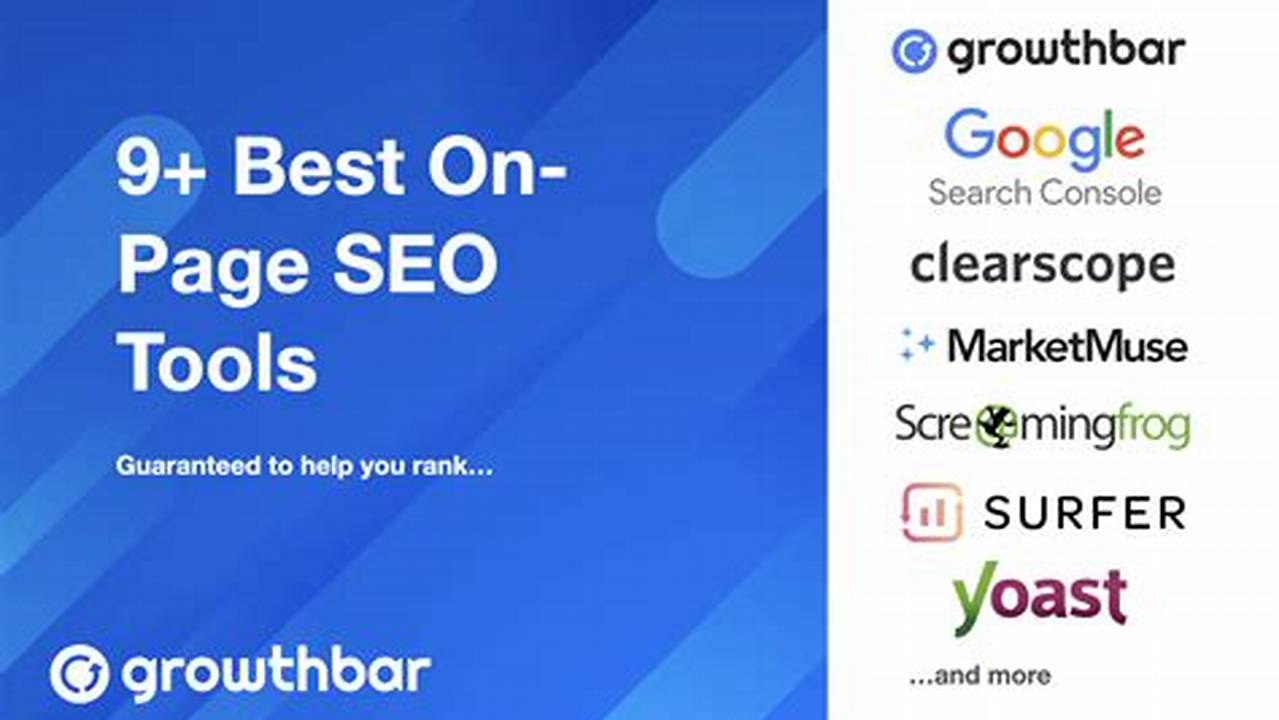Achieving high search engine rankings requires a multifaceted approach, and off-page optimization plays a crucial role. Utilizing effective tools for off-page search engine optimization can significantly enhance website visibility and authority, driving organic traffic and improving overall search performance.
Link Building Tools
These tools assist in discovering backlink opportunities, analyzing competitor strategies, and managing link-building campaigns.
Social Media Management Platforms
These platforms facilitate engagement with target audiences, content promotion across various channels, and brand building, indirectly influencing search engine rankings.
Content Marketing Resources
Creating high-quality, shareable content is essential for off-page SEO. These resources help in content ideation, creation, and distribution, attracting backlinks and social media shares.
Mention Monitoring Tools
Tracking brand mentions across the web helps identify opportunities for link building and reputation management.
Influencer Marketing Platforms
Connecting with relevant influencers can amplify content reach and drive valuable backlinks.
Forum and Community Engagement Tools
Participating in relevant online communities helps build brand authority and generate referral traffic.
Directory Submission Tools
Listing a website in relevant directories can improve online visibility and potentially drive traffic.
Local SEO Tools (if applicable)
For businesses targeting local customers, these tools help manage online listings, reviews, and citations, which are crucial for local search rankings.
Competitor Analysis Tools
Understanding competitor strategies provides insights into effective off-page tactics and areas for improvement.
Analytics and Reporting Tools
Monitoring key metrics like backlinks, referral traffic, and social media engagement helps assess the effectiveness of off-page efforts and identify areas for optimization.
Tips for Effective Off-Page Optimization
Focus on building high-quality backlinks from reputable sources.
Create engaging content that encourages social sharing and attracts natural backlinks.
Monitor online reputation and address negative reviews promptly.
Track and analyze results to optimize off-page strategies continually.
Frequently Asked Questions
How does off-page SEO differ from on-page SEO?
On-page SEO focuses on optimizing elements within a website, while off-page SEO focuses on activities external to the website to improve its search engine rankings.
Why are backlinks important for off-page SEO?
Backlinks from authoritative websites signal to search engines that a website is trustworthy and relevant, boosting its rankings.
How can social media impact SEO?
While social media signals may not directly impact rankings, increased social engagement can lead to greater brand visibility, website traffic, and potentially more backlinks.
What is the role of content marketing in off-page SEO?
High-quality content attracts backlinks and social shares, improving a website’s authority and visibility in search engine results.
How can I measure the success of my off-page SEO efforts?
Tracking metrics like backlinks, referral traffic, social media engagement, and keyword rankings can provide insights into the effectiveness of off-page strategies.
What are some common off-page SEO mistakes to avoid?
Building low-quality backlinks, engaging in spammy practices, and neglecting online reputation management can negatively impact off-page SEO efforts.
By strategically leveraging these tools and implementing effective off-page optimization techniques, websites can enhance their online presence, attract targeted traffic, and achieve sustainable growth in search engine rankings.

Leave a Reply